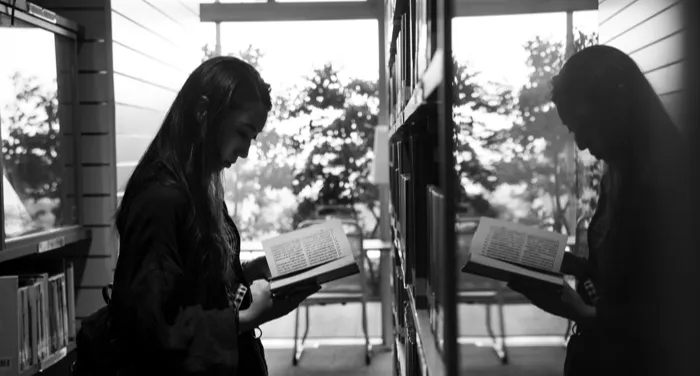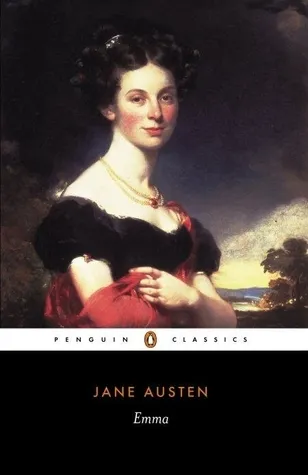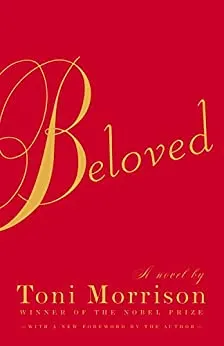
Who Can Be Redeemed?
One of the most culturally dominant television shows crafting redemption narratives is RuPaul’s Drag Race All Stars. When a drag performer returns for an All Stars season, they usually want to show off growth in their art form or correct the record about their portrayal on reality television. It’s an intricate dance to achieve a redemption narrative on the show: you can’t come off as too desperate to fix your reputation, but you can’t seem like you don’t care about your sparkling opportunity to gain an even stronger foothold in the Drag Race fandom. Though it’s a reality show, it’s just as manufactured and carefully calibrated as any written novel. In the case of storytelling, who can be redeemed?
Putting aside for a second why it’s unfair for the Drag Race industrial complex to have so much control over a drag performer’s career, it’s a useful illustration of the slippery idea of redemption. The fandom can be incredibly vicious to drag performers they feel are not appropriately humble, kind, or successful at their art in an All Stars season. The Drag Race fandom is also notoriously hard on contestants of color.
Even with all these issues of prejudice roiling around, what reads as redemptive to some might still be anathema to others. Redemption has a lot to do with our personal moral compasses, partially shaped by one’s religious and societal upbringing.
Redemption in Literature
In a study in the Collabra: Psychology journal called “Redemptive Stories and Those Who Tell Them are Preferred in the U.S,” researchers studied the concept of redemption narratives and “examined the common, but untested, theoretical assumption that those in the United States prefer negative past experiences, such as trauma, to be redeemed, to be resolved in some positive or growth-promoting fashion.” They found that readers did prefer redemption in stories, evening finding narrators of redemptive stories more likable.
The most basic interpretation of this finding is that readers like to see characters go on a journey. From evil to good, from sad to happy, and more. A Christmas Carol by Charles Dickens is a classic tale of redemptive suffering, as Scrooge has to realize the error of his ways before righting his wrongs. In Emma, Jane Austen’s deliberately unlikable main character has to realize the error of her ways and humble herself before her happy ending. Jean Valjean in Les Misérables goes on a journey of redemption after the Bishop Myriel shows him kindness.
Redemption can take a variety of shapes. It’s common for characters to apologize and do work to make up for their actions. In classic literature, redemption can come through the grace of the divine or the love and support of other characters.
Who is redemption for?
Since redemption was originally defined through religion and explored in classic literature, it’s important to understand how it can be an exclusionary concept. Since it is determined by a community’s moral code, what counts as redemption is very tricky.
Allowing redemption for everyone is important for characters who are usually seen as pre-determined evil. This is the main point of Native Son by Richard Wright: Bigger killed people to protect himself, but his lawyer argues he was locked in an unjust system from birth that would have ruined his life, anyway. Hester Prynne in The Scarlet Letter suffered similarly, in that she did something wrong (adultery) in the context of her time, but she died a saint. Characters locked in an already unjust system don’t have the freedom to redeem themselves in a society that reads them as a priori wrong.
Beloved by Toni Morrison can be read as someone searching for redemption. Sethe feels the ghost of her departed child in her house, and when Beloved arrives at their house, Sethe is eager to shower Beloved with the affection for her lost daughter. This isn’t a strict redemptive narrative, though — it’s about the difficulty of healing old wounds more than anything else.
White characters in some famous classic literature get time and space to work on their black-and-white redemptions, while characters from different backgrounds have to cope with difficult decisions that take them into morally gray territory.
To counter the idea of silent suffering as redemption, there’s also a literary trend for characters who speak up to their unjust circumstances. Instead of swallowing unfair treatment, a character may enact revenge on their tormentors. This is technically not redemption, for the character is not gently forgiving the bad actors.
Who needs to be redeemed?
The problem of redemption is that once you move away from some of the more classic conceptions, it’s not as simple as the input of a good action to get an output of forgiveness.
Redemption is tied up with a lot of societal ills and prejudices. The concept of who “deserves” redemption is an inexact, highly personal conception. What is forgivable, and how do we expect people to make amends for negative actions? In media that a lot of people engage with, the redemption needs to appeal to a larger audience — hence why RuPaul’s Drag Race All Stars is such an important venue for drag queen redemption.
The other issue of redemption is that all readers approach redemption narratives with their own experiences and prejudices that color how they see the redemption narrative, especially for characters with historically marginalized identities who have to make difficult decisions because of the unfair world around them.
The most well-known narratives of redemption do focus on straight, white, cisgendered men, like much of Dickens’ work, and Les Misérables. However, redemption is such a far-reaching concept that it really can’t be boiled down to white men and their struggles. A huge part of storytelling is thinking about what we owe to each other.
One of the issues with redemption in contemporary writing is that fandoms can be so hard on characters whose redemption stories are not seen as sufficient. I often see people holding up Zuko in Avatar: The Last Airbender as one of the best redemption narratives, it’s important to recognize that Zuko got a very long arc. As readers, we have to offer grace to redemption narratives in singular novels, especially for characters of color saddled with impossible decisions.
Moving forward from the concept of redemption, it’s important to interrogate how we can reconcile the idea of literary redemption and standing up to injustice. Many characters will strive to make up for their negative actions and be seen as good and right, even though they’ll have to make morally gray decisions.
To read books related to redemption, you can dive into books about surviving when things fall apart, must-read books about family (often classic stories of redemption), and books about people overcoming the odds.












